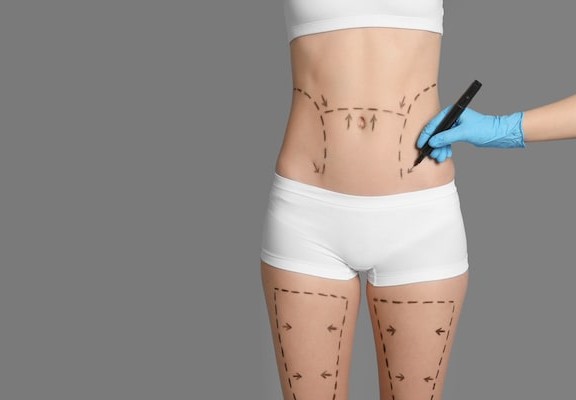Liposuction is a surgical procedure which can remove unwanted fat from various areas of the body. It is known as a body sculpting procedure and is primarily designed for patients who are near their ideal body weight but have trouble losing stubborn pockets of fat resistant to diet and exercise. Liposuction can restore or create a better proportion and improve your body contour. However, not everyone is a good candidate for liposuction due to their body weight or health conditions. Therefore, seeking a consultation with a board-certified doctor can help determine if liposuction is right for you.
Preparing for the Consultation
 Preparing for a Beverly Hills liposuction consultation will take some planning on your part. When you set up your consultation appointment, you should ensure that the person you are meeting with is the doctor performing the procedure. Many people believe the person they are going to talk to is also the one doing the surgery. However, that isn’t always the case.
Preparing for a Beverly Hills liposuction consultation will take some planning on your part. When you set up your consultation appointment, you should ensure that the person you are meeting with is the doctor performing the procedure. Many people believe the person they are going to talk to is also the one doing the surgery. However, that isn’t always the case.
The next thing you should consider is your surgical goals. You must be able to clearly explain what changes you would like to see and what you expect to gain from your liposuction procedure. The surgeon should be able to tell whether these goals are achievable with liposuction. You will be asked about prior surgeries, medical conditions, allergies, lifestyle habits and current medications. Certain herbal remedies can thin the blood or increase surgical risks so be sure to include them in your information. The surgeon will also be performing an examination of the treatment area, including the laxity of the skin, to see if you are a good candidate for liposuction.
Make a List of Questions for the Surgeon
If you are a candidate for liposuction, the surgeon may take photographs of the treatment area to be used as reference. The surgeon should discuss various liposuction techniques such as tumescent liposuction, laser liposuction and ultrasonic liposuction with you. The consultation is the best opportunity to discuss the likely outcome of the procedure as well as any potential complications or risks. Many patients become sidetracked during the consultation and often leave there with unanswered questions. Therefore, it is recommended to make a list of questions prior to the consultation. Common questions include:
- The surgeon’s certifications
- How long he, or she, has been performing the procedure
- The estimated cost of the surgery
Having this list will help you gain the answers to your questions and make the most out of your consultation. After all, a well-informed patient tends to have the most successful results.
SP



